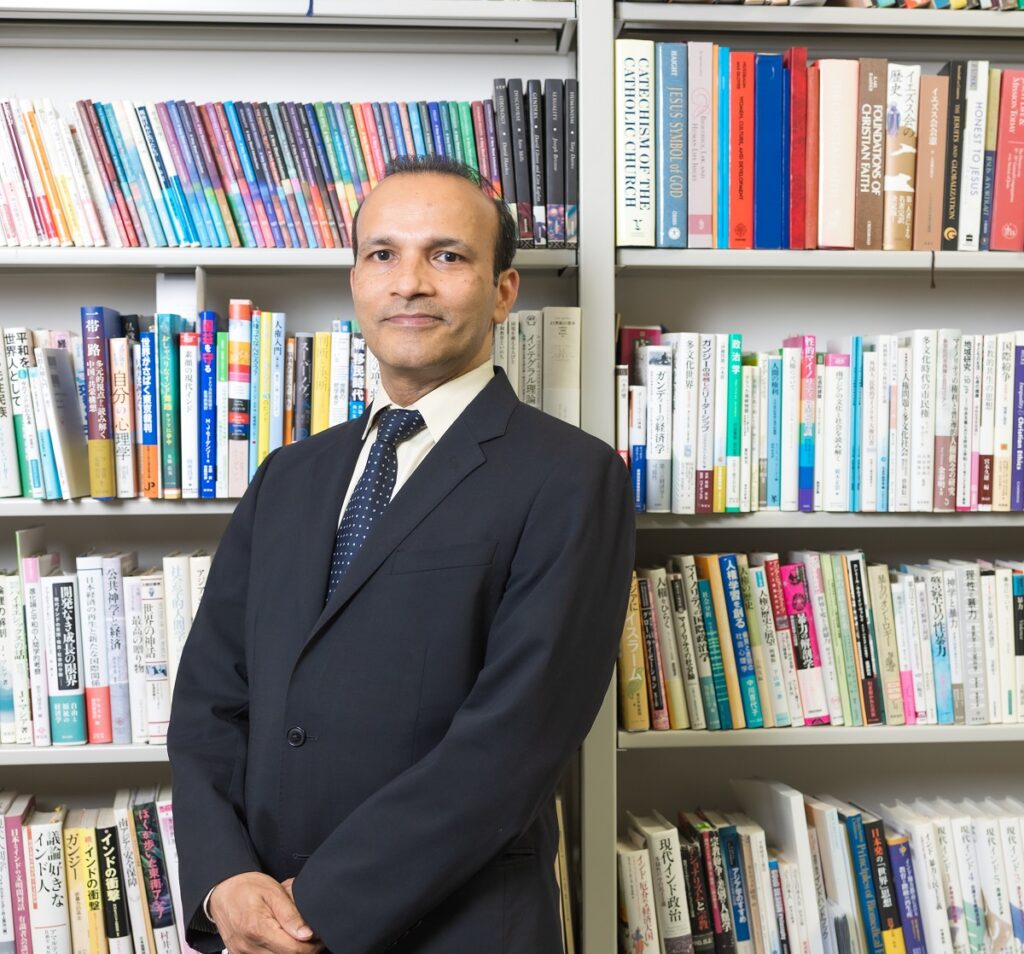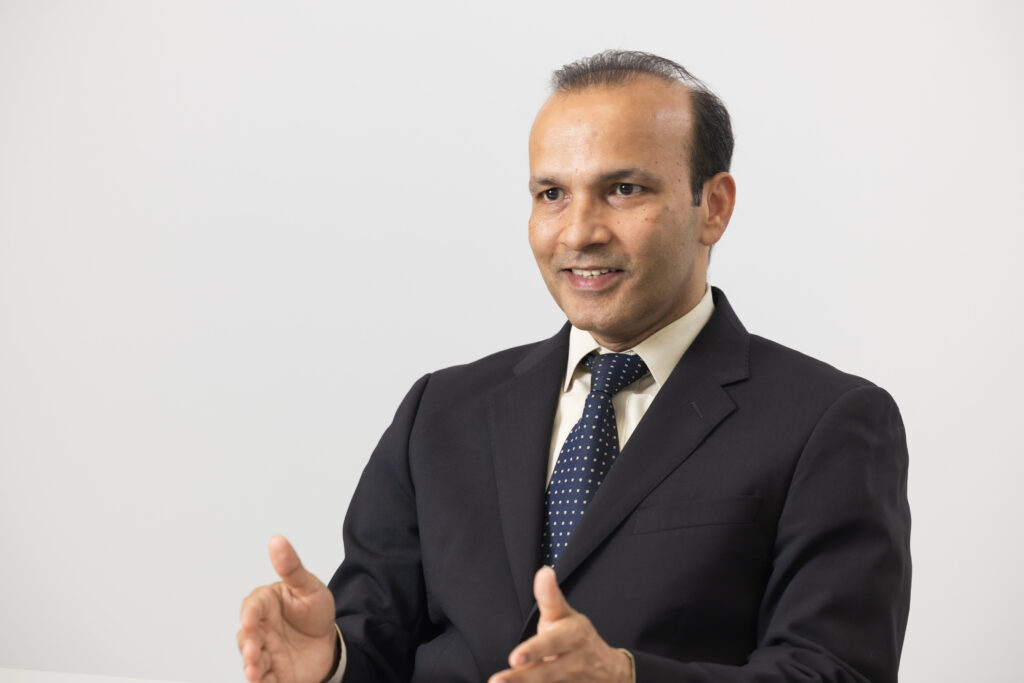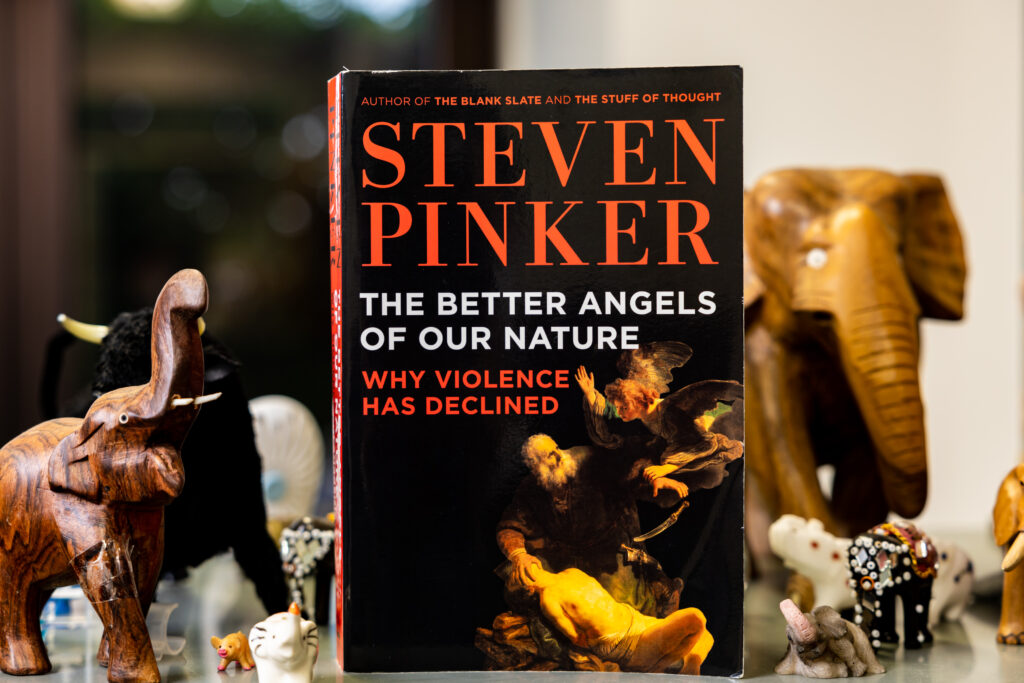
“There is a clear mechanism behind riots,” says Professor Sali Augustine from the Faculty of Global Studies, who conducts research on communal conflicts in India, his country of birth. He talks about the significance of learning about the violent nature of humans in modern society from his own experience in research on ethnic violence.
Wars are usually positioned as combat between nations involving the use of military force, while conflicts—particularly ethnic conflicts—are seen as contention between civilians with different racial or ethnic identities. Although there are also confrontations between ethnic groups and governments, I conduct research on communal conflicts in India, which are confrontations between Muslims and Hindus.
These communal conflicts may look like religious conflicts on the surface because of their religious identities, but in India they are called ‘communal conflicts’ because clashes are centered on a few major cities and limited to between those local ‘communities’. Such violence also revolves around the civilians who usually live together in a normal way.
Invisible divisions (from culture, traditions, beliefs, economic disparities, and such) exist at the root of such violence. Many of these conflicts involve clashes in daily life, and sometimes lead to extremely violent exchanges. How do confrontations between groups with different identities start? Why do they develop into mutual killings? What is the violent nature of humans that suddenly and completely change mild personalities? In my research, I try to use interdisciplinary academic knowledge—such as political science, psychology, philosophy, and religion—to analyze the causes of violence and the trends of people who participate in such conflicts.
Commonality of Riots—Triggering incidents intensified by various elements.

My research on conflicts and violence started when I was a graduate student. It began when a major riot broke out between Muslims and Hindus in the state of Gujarat where Mahatma Gandhi was born. Towards the end of the riot, I visited the scene, listened to many people, and while comparing it with past riots in 50 other countries, focused on the mechanism of riots.
The results showed that all conflicts have similar mechanism. They start with a triggering incident followed by the spread of rumors and people of the same identity get united. Then all kinds of violent actions (like arson, rape etc.) take place which is intensified by retaliatory activities. This process (other elements also) is the same for all riots. But they can all be settled within a short period of time if the government acts with determination and decisiveness. While tension may remain for a while in civilian life, it was shown that the situation will return to a certain extent to its pre-conflict state after several years.
Violence as a commonplace problem and coexistence
Today, Japan may find less experience of conflict and violence in a sociological sense. But we need to learn seriously about the nature of human violence. It is because in the future, as the nationalities, cultures, faith, and gender identities of people living in Japan diversify, there is the possibility of confrontation over some issues. Therefore, it is crucial to start thinking about the direction of Japan’s future of coexistence.
Domestic violence between spouses or parents and children, date violence, and behaviors such as power harassment and hate speech—are all violence. They can also be found in Japan. In addition, as long as there are people struggling with poverty or disparity and discrimination, there will continue to be ‘structural violence’ in society. If we see things this way, even if the perpetrators cannot be seen, we can think of social structure itself as the perpetrator, which means I am also a party. Even in modern Japan, violence is a very commonplace problem.
I became convinced of the need to build mechanisms to proactively prevent violence. Strengthening of the everyday life and institutional engagement, as well as thorough and willful intervention of government agencies, etc. can prevent violence. What we should aim for is to see, ‘how we can reduce violence and injustice even a little’ and such efforts will produce good result. Society will surely change if we do not ignore the violence around us and take action to eliminate it.
The book I recommend
“The Better Angels of Our Nature: Why Violence Has Declined”
by Steven Pinker, Viking, 2011.

This book touches on the history of violence as well as the “better angels” in human nature that leads to the decline in violence. These are empathy, self-control, moral sense, and reason—which are inherent in us—and their development orients us away from violence. The Japanese translation is a two-volume work called “Boryoku no Jinruishi.”
-
Sali Augustine
- Professor
Department of Global Studies
Faculty of Global Studies
- Professor
-
Obtained bachelor’s degrees in Political Science from the University of Calicut, India and Philosophy from Jnana-Deepa Vidyapeeth in Pune, India. Subsequently, graduated from the Faculty of Theology, Sophia University and received his M.A and Ph.D. in Area Studies (Ethnic Politics) at the Graduate School of Foreign Studies. Worked as lecturer at the Sophia University’s Faculty of Humanities, associate professor and professor at the Faculty of Theology—before assuming his current position in 2016. He is currently the Chancellor of Sophia School Corporation (2023.05.01~).
- Department of Global Studies
Interviewed: June 2022